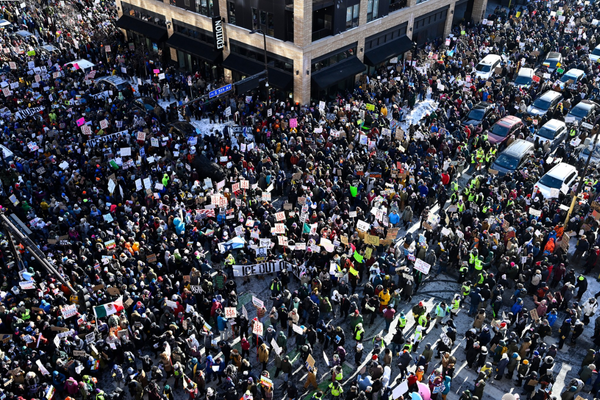
The day I delivered my inaugural speech in the Victorian parliament, I walked out relieved and immediately checked my phone. I saw the first Twitter notification.
“Whoreable person.”
I put it down, hugged my family and friends and accepted congratulations. I wasn’t going to let the pervasive nature of cyberhate take the moment away from me.
Despite only being elected for a mere three months, my response to online threats and harassment has already become somewhat sterilised, almost robotic. It has happened too many times before to keep track of everything said. It used to sting me a lot more.
Over recent years, our Houses of Parliament have been portrayed as unsafe spaces for women and other gender diverse politicians and staffers. This can certainly be true: some women – who are readily attacked for doing so – continue to expose the harassment and even sexual abuse they’ve faced in the halls of power.
But perhaps the place we’re most consistently at danger is one we must carry around with us, everywhere we go – slid into our pockets or pushed into our bags.
The threats we receive on our phones through emails, text messages and social media are ever-constant to the point we build up a resilience that should be considered unhealthy.
Every politician, regardless of gender, expects to be challenged on their policy. As we should be. Yet for women, it consistently goes beyond politics. It goes to the personal.
You shouldn’t need to have a thick skin to be a woman who can survive in politics (or any male-dominated workplace).
So today, on International Women’s Day, I’m wearing my online harassment to work by donning a dress to Parliament House adorned with just some of the tweets, emails and comments I’ve received since being elected.
Despite the online abuse I receive being particularly vile and misogynistic – due to my past as a stripper – my situation is not unique. The scars and damage of online harassment to female politicians are a burden across party lines.
It’s something we share together, sometimes even laugh about. There’s a shared camaraderie among the alarming ping of a phone notification, the rolling of the dice between what could be an update on a proposed bill, or a sexually charged death threat. Because what more can we do? The situation feels powerless, and the internet makes us accessible in a way we can’t control.
But it doesn’t need to be this way, and it mustn’t be. Last year, Gender Equity Victoria wrote a report titled Gendered Online Harassment of Women in Politics. It included recommendations for online safety for women working in politics in Victoria.
The report found that online gendered violence and cyberhate is a norm in politics. Participants described being frequently abused via social media, phone and email. Perhaps most pertinently, it found the online harassment of women is damaging democracy.
A healthy democracy requires a diversity of voices, but a rational fear of normalised abuse against women, with no tool to stop it, is deterring women and gender-diverse people away from running for public office, and from being able to withstand it and be their most effective once they’re in. We’d much rather spend our time on positive social change than on emptying our inboxes of violent threats, sexist comments and attacks.
The report recommended mandatory training and development around online safety at work, for perpetrators of online abuse to be held accountable, the allocation of more staff members to assist with social media management, and for the online safety of women to be considered a collective, not individual, responsibility. These recommendations are all important, and should be implemented.
But the most important thing is changing the narrative around how women – no matter what they do for work or who they are – are treated online. Last year, The Global Institute for Women’s Leadership found that Australian men rank among the most misogynistic in the western world. Stopping this disturbing trend starts with the very men responsible, and it’s clear we have a long way to go.
That’s why I’ve decided to put a face – a person, someone with lived experience of mental ill-health – to those words that I receive each and every day, and that I drag with me like weights on the worst days. Maybe it will make just one of those who send these messages reconsider.

Ironically, the moment the parliamentary bells ring for the day’s session to begin, I need to take the dress off and change into a different, more “appropriate” outfit. The language I am wearing, even silently, is considered unparliamentary, and could be breaking the rules of the House.
If I can’t wear it, why aren’t we doing more to stop them saying it?
Georgie Purcell is an Animal Justice Party MP in Victoria’s upper house.






